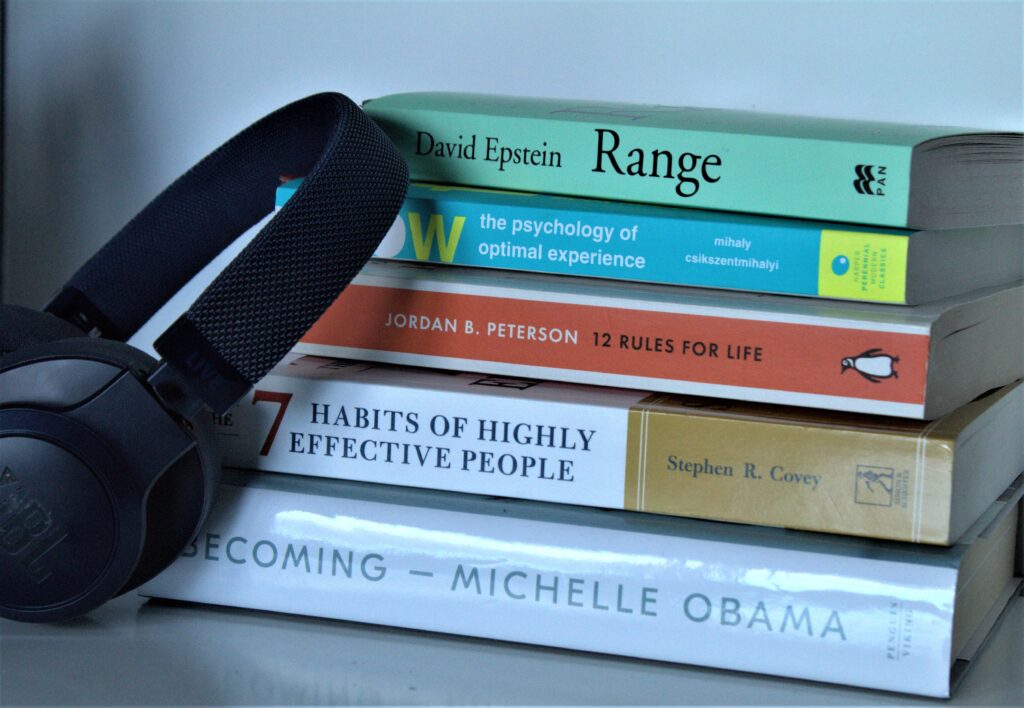For many postsecondary students, self-help therapy books are a means to an end until in-person therapy becomes an option

From waiting weeks on end for an appointment to opening up to a stranger about your deepest troubles, for many Ryerson students, professional therapy is anxiety inducing.
For fourth-year sociology student Sandeep Sidhu, trying out self-help books was the perfect way to learn more about depression, mental health and cognitive distortions when she wasn’t quite ready to seek further help.
“They were really useful,” said Sihu, who is the president of Students for Mental Awareness, Support & Health (SMASH), a student group at Ryerson. “The basic workbooks that I started were depression oriented. After getting diagnosed, these workbooks were useful for me because I wasn’t quite ready to go into counseling, or even sure if I wanted to do counseling.”
Students say self-help books, which are individually guided and meant to help improve wellbeing, are largely affordable and easily accessible. Well-known books such as 7 Habits of Highly Effective People and The Subtle Art of Not Giving a F*ck are credited with helping many young adults and older adults change their perspective.
“Right off the bat, they are very subjective,” said Sidhu. “Everybody connects with the content differently. While one thing might resonate with one person, it may not do much for another person.”
Self-help books target specific conditions, such as depression and anxiety, often with the aim to help individuals become more successful and mindful. Many self-help books are written using a cognitive behavioural lens, which aims to build personal coping strategies, improve emotional regulation and challenge mental distortions.
Martin Antony, a professor and graduate program director for the department of psychology at Ryerson, says the true benefits from self-help depend on the person’s personality, willingness to implement the learned content and the severity of their condition.
Academic studies have found that self-help books can yield similar results to in-person therapy, but only if the reader is actively engaged in applying the content to their daily lives, according to Antony.
“One question I get asked often from people is, ‘if I read your book is my anxiety going to go away?’ And my answer is yes, your anxiety is going to go away, in the same way that if you read a book about exercise, you’re going to get physically fit,” said Antony, who has written self-help books The Anti-Anxiety Program and Cognitive Behavioral Treatment of Perfectionism.
“I would expect nothing to change as a result of just reading the book.”
In a steady book industry that shows promising year-over-year growth, experts say it’s important to watch out for trends and fads that may not have the evidence to back up their claims.

“It’s not enough to just get something because it’s available and because the author or the publisher says it’s good,” said Antony. “Knowing something about what it’s based on and whether that’s an evidence-based approach can be useful as well.”
At Ryerson, Sidhu says students often get discouraged by the notoriously long-wait times or the difficulty in finding a therapist they feel comfortable opening up to, only to have trouble securing appointments with them long-term. To help supplement in-person therapy, Ryerson provides a range of resources such as virtual counselling apps and direction toward emotional support helplines.
“If you know it’s going to be a wait, and you know that you’re struggling to take care of yourself or address something, you have to find an alternative in the meantime,” said Sidhu.
But even though self-help therapy books and online resources work for some, the solution isn’t one size fits all, and books are nowhere near an adequate replacement for in-person support.
“It sucks so much that the waiting time is so long, but it was worth it,” said Sidhu. “It was like somebody was seeing who I was and what I was going through. It got me to think critically about my mental health and actually think of some next steps of how I can take care of myself.”
According to the university, therapy appointments are typically 50 minutes in length, and are centred around a short-term counselling model that lasts an average of 12 sessions or less. Beyond individual therapy sessions, students can seek out group sessions too.
All forms of counselling have continued during the COVID-19 pandemic online, and have even been expanded – Ryerson is currently offering virtual app counselling through the Keep.meSAFE program, which is open to all students.
Despite this, there still aren’t enough resources to accommodate all students who want in-person or one-on-one therapy. To address this, Antony said the best application for self-therapy books may not be for the consumer or individual, but in conjunction with in-person therapy to minimize overall time spent while maximizing long-term results.
“The Counseling Center has limited resources, so they can’t see people for long-term therapy and have a limited amount of availability,” said Antony. “That would be one model that they could implement, where they combine brief sessions with self-help where they (to) see more people. A lot of research is showing that (this) can be effective, but whether people are doing it is a whole other thing.”
Sidhu, who has access to a therapist from Ryerson and two from the Keep.meSAFE program, said she’s grateful her recent experience shows some therapists are recommending self-help books too.
“I’ve had an experience with almost all of these counselors where they have been listening to me and recommending resources throughout the session,” said Sidhu. “I think that it is a great idea for therapists to kind of give their clients homework to do, something that they can work on in between sessions so that they’re not forgetting what they talked about.”
Sidhu says RyeSMASH is currently exploring options for next semester to spread awareness about self-help resources in the form of books, apps and online programs for students. Plans were already in place to provide additional resources, but the pandemic pushed timelines back.
Whether or not therapy in-person is doable, Antony said it’s worth reaching out to find some sort of support system through counselling apps or online platforms that can help people navigate a self-help book.
“The expectation is that people will actually do the things that the book describes, which for some people, they can pick up a book and run with it,” he said. “For other people, they need a personal trainer to kind of keep them on task.”
